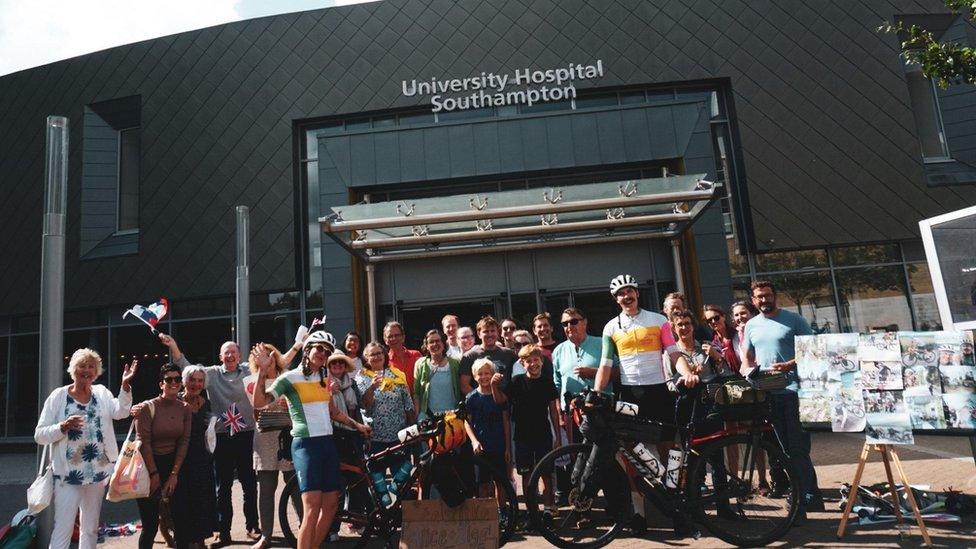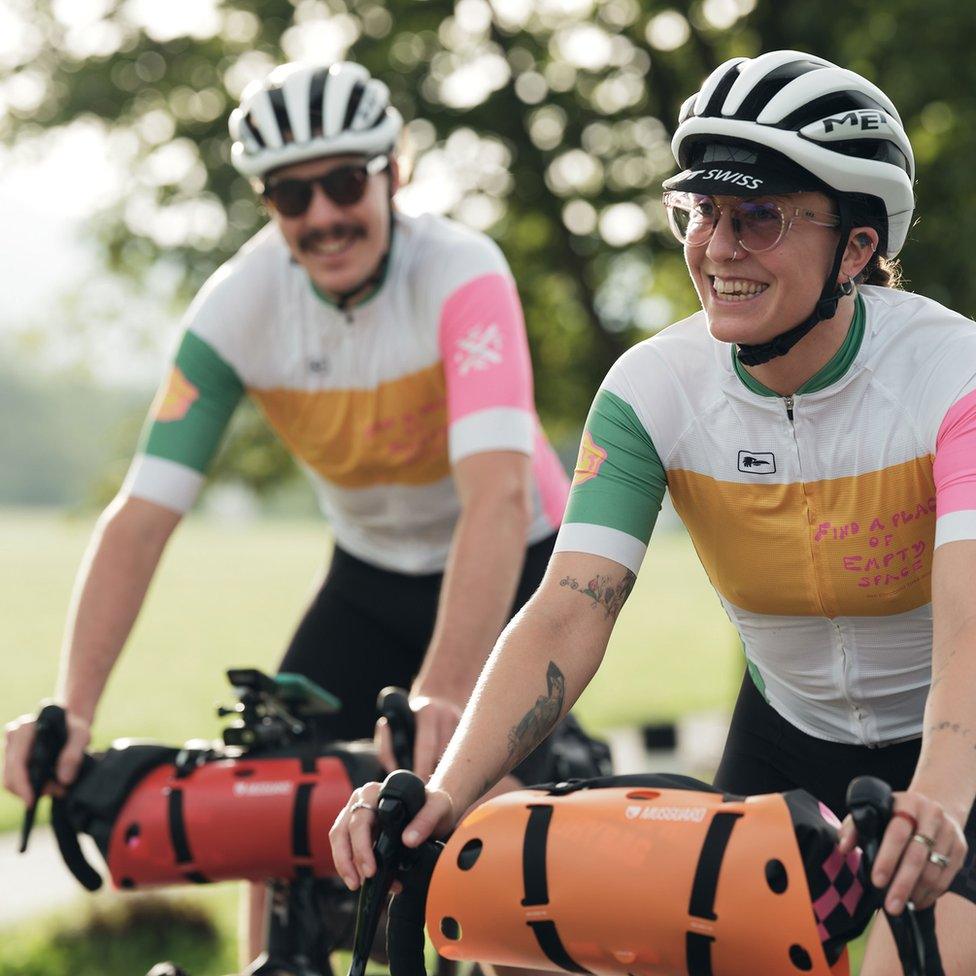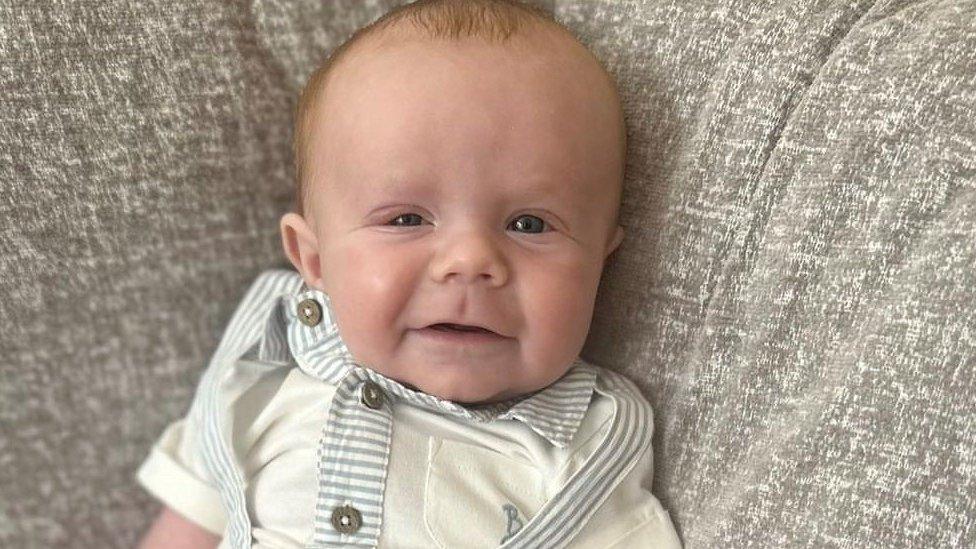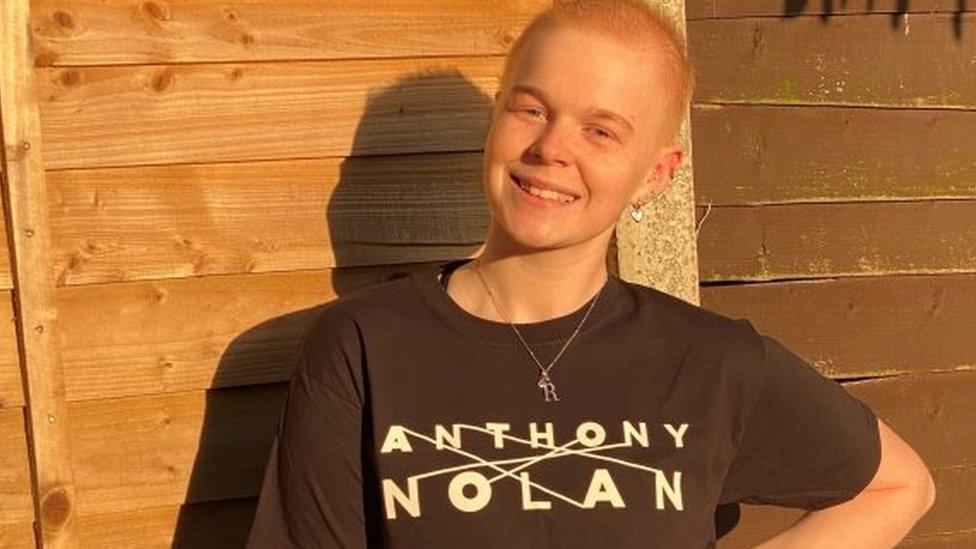Couple complete 'epic' Slovenia to Southampton cycling challenge
- Published

The couple's family and friends welcomed them at the finish line at Southampton General Hospital
A married couple have cycled from Slovenia to Southampton for charity.
Alice Shepherd Erlac and husband Ziga have raised more than £5,000 after riding 2,000km (1,243 miles) in 31 days.
Mrs Shepherd Erlac said they took on the challenge in memory of her father, who died from bone marrow cancer, and to raise awareness about how people can become stem cell donors.
She said the journey had been "epic".
"When I spoke to my dad about his cancer and treatment, he said he handled the mental strain by trying to 'find a place of empty space'."
She said they "had this written across our chests on our bike jerseys" and made a point "of being in the moment as much as possible".
"This is something we will take with us into the future as well."

Alice Shepherd Erlac and husband Ziga rode 2,000km (1,243 miles) in 31 days
The couple's family and friends welcomed them at the finish line at Southampton General Hospital on Saturday, on what would have been Mrs Shepherd Erlac's father's 59th birthday.
"We hadn't been back to the hospital since his death 10 years ago, so it was lovely to make new, positive memories there as a family," she said.
She is British and her husband is from Slovenia, which is where they have lived for the past five years.
They set off from their hometown in Maribor on 3 August.
The couple travelled through Austria, Germany, France, travelled by ferry via Jersey to Poole, Dorset, before the final leg to Southampton, camping along the way.
The trip raised funds for Southampton Hospitals Charity, and Anthony Nolan, a charity which encourages people to join its stem cell donor register.
On the couple's fundraising page they explain how stem cell transplants are statistically more successful when the donor is between the age of 16 and 30.
They hope more young people will sign up to the register to help more patients in need.

Follow BBC South on Facebook, external, Twitter, external, or Instagram, external. Send your story ideas to south.newsonline@bbc.co.uk, external.
Related topics
- Published22 August 2023

- Published7 June 2023
